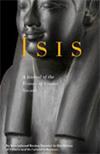恩斯特·马赫的《大众科学》
IF 0.9
2区 哲学
Q2 HISTORY & PHILOSOPHY OF SCIENCE
引用次数: 0
摘要
本文考察了物理学家恩斯特·马赫的著名著作。像19世纪后期中欧的许多其他科学家一样,他认为流行的体裁不仅是一种教育普通大众的手段,也是一种与其他专家交流论点的手段。在许多情况下,他利用他的普及来吸引他的同事们注意到科学推理的生物学和进化特征,尽管他自己对这些特征的理解在19世纪80年代和90年代初发生了变化。值得注意的是,他开始相信人类本能地解读自然中的物质。在采用这种关于物质的新观点几年后,他将其纳入了一系列流行的著作中,这些著作旨在概述他对热力学的总体看法,并对1895年德国自然科学基金会Ärtze上爆发的关于“能量论”的争论发表看法。本文章由计算机程序翻译,如有差异,请以英文原文为准。
Ernst Mach’s Popular Science
This essay examines the physicist Ernst Mach’s popular work. Like many other scientists in late nineteenth-century Central Europe, he viewed the popular genre as a means not only of edifying the lay public but of communicating arguments to other specialists. In many cases, he used his popularizations to draw his colleagues’ attention to the biological and evolutionary features of scientific reasoning, although his own understanding of those features changed in the 1880s and early 1890s. Notably, he came to believe that human beings instinctively read substances into nature. Several years after adopting this new perspective on substance, he incorporated it into a series of popular works that were intended to outline his views on thermodynamics in general and to weigh in on the controversy over “energetics” that erupted at the 1895 Versammlung Deutscher Naturforscher und Ärtze.
求助全文
通过发布文献求助,成功后即可免费获取论文全文。
去求助
来源期刊

Isis
管理科学-科学史与科学哲学
CiteScore
1.00
自引率
16.70%
发文量
150
审稿时长
>12 weeks
期刊介绍:
Since its inception in 1912, Isis has featured scholarly articles, research notes, and commentary on the history of science, medicine, and technology and their cultural influences. Review essays and book reviews on new contributions to the discipline are also included. An official publication of the History of Science Society, Isis is the oldest English-language journal in the field.
The Press, along with the journal’s editorial office in Starkville, MS, would like to acknowledge the following supporters: Mississippi State University, its College of Arts and Sciences and History Department, and the Consortium for the History of Science, Technology, and Medicine.
 求助内容:
求助内容: 应助结果提醒方式:
应助结果提醒方式:


